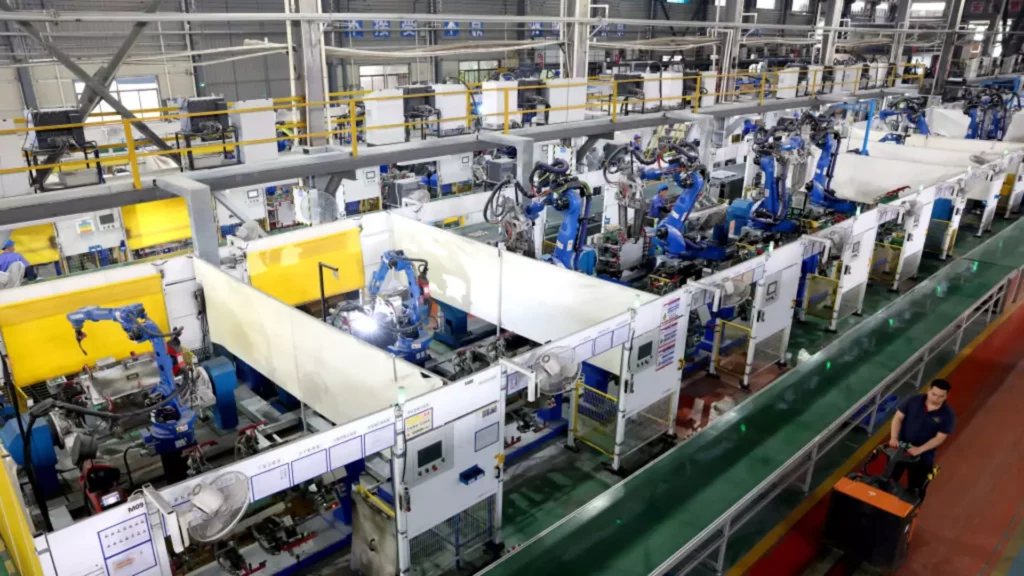![]()
The survey conducted by the EU Chamber of Commerce in China revealed that European companies in China are facing increasing challenges in maintaining profit margins as the country’s growth slows down and overcapacity pressures rise. According to the chapter head in Shanghai, delays in getting paid and difficulties in enforcing contracts have impacted businesses, especially in dealing with state-owned enterprises. As a result, only 30% of survey respondents reported higher profit margins in China compared to their global average, marking an eight-year low in profitability.
The slowdown in China’s growth, partly influenced by geopolitical tensions and a downturn in the real estate sector, has further exacerbated the challenges faced by European companies operating in the country. The current economic situation raises concerns about the depth and duration of the slowdown, especially as trade tensions with the U.S. escalate and Beijing focuses on strengthening its manufacturing sector for tech self-sufficiency.
Although Chinese authorities have made efforts to attract foreign investment through initiatives like visa-free policies and tax exemptions, European companies continue to encounter regulatory barriers that hinder their growth potential in China. The country’s emphasis on manufacturing and overproduction has also raised global concerns about reduced profit margins, with more than one-third of survey respondents observing overcapacity in their industries over the past year.
Despite China’s gradual opening of its market and removal of off-limits categories for foreign businesses, organizations like the EU Chamber stress the importance of further improvements to create a conducive environment for foreign companies. The latest survey highlighted growing skepticism among respondents about their growth prospects in China, along with concerns about competitive pressure, profitability, and regulatory obstacles limiting business opportunities.
European companies in China are now facing a more challenging outlook as ongoing pressures from competition, lower demand, and regulatory hurdles are becoming more entrenched. This evolving landscape has led companies to consider cost-cutting measures, including reducing headcount and marketing budgets. The survey results underscore the persistent concerns regarding the predictability and visibility of the regulatory environment in China, which continue to impact business operations.
The findings of the survey conducted by the EU Chamber of Commerce in China highlight the growing difficulties faced by European companies operating in the country. The combination of economic slowdown, overcapacity pressures, and regulatory challenges have created a more competitive and uncertain business environment for foreign investors. Moving forward, it is essential for China to address these issues and implement reforms that promote a more favorable and sustainable ecosystem for international businesses.

Leave a Reply